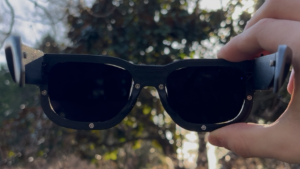During an internship researching mobility rehabilitation with a medical engineering charity, industrial design graduate Cara O’Sullivan travelled to Peru where she found that there was a lack of assisted walking aids for disabled people. This sparked the idea for a low-cost walking aid system, the Evolvable Walking Aid Kit.
O’Sullivan believes that access to assistive equipment in developing countries is particularly limited, even more so when it comes to children who are living with disabilities. She says, “this often prevents people from working, getting an education or participating in their community.”
O’Sullivan points out that there is a need for a walking aid that can adapt to a variety of disabilities and different stages of progression or deterioration.
To create the Evolvable Walking Aid Kit, O’Sullivan collaborated with physiotherapists to assess the inefficiency of walking aids currently on the market and the key elements of a standard model. The goal was to design a low-cost, long-term, easy-to-use and adaptable solution. After intensive research, O’Sullivan realised that a modular set made up of separate parts was the most efficient way to design a product that could be tailored to an individual’s needs.
To reduce the price of the kit, it was decided that recycled timber and cable ties were the most widely available and cost-effective materials for the design. The team involved in production tested the materials on a prototype and arrived at a model that could be assembled by following colour-coded markings and without reading instructions.
The end result is a walking aid that can be transformed into a walking frame, a pair of axillary crutches or a walking stick for less than 70 pence.







